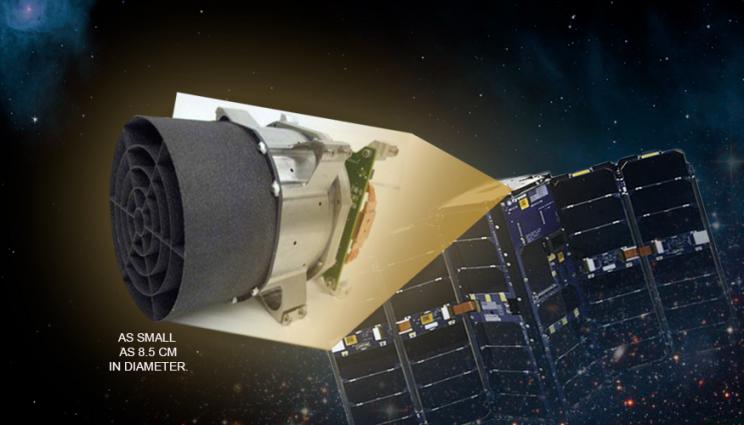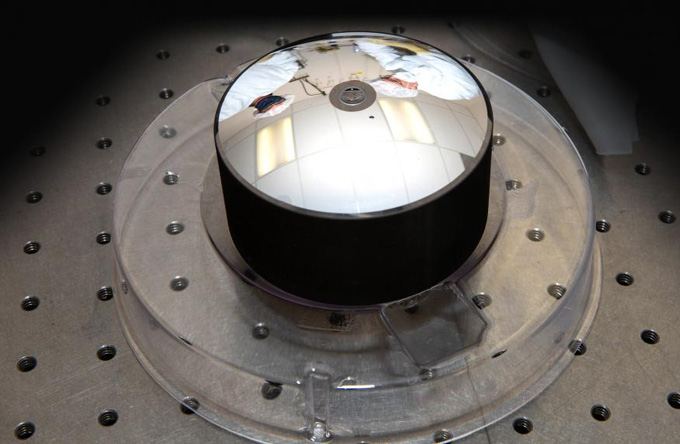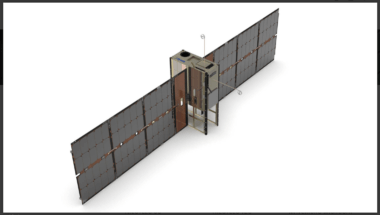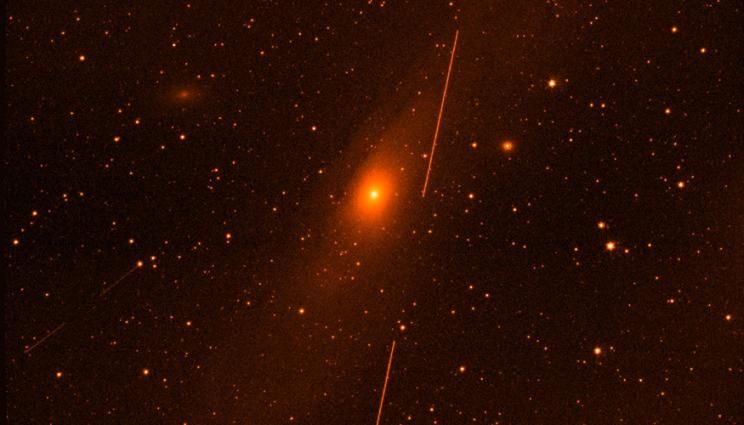A new nanosat has been quietly snapping over 4500 pictures of the Earth and the sky after its launch on May 15th. Rocketed into orbit on a Falcon 9, the nanosat, known as GEOStare2, actually contains two different telescopes – one focuses on a wide field of view while the other has a much narrower field of view but much higher resolution. Together they aim to provide data on Earth, the stars, and the network of satellites in between.
The telescopes are based on the MonoTele technology, developed by the Department of Energy’s Lawrence Livermore National Laboratory over the past 8 years. This unique telescope uses a single fabricated silica slab rather than the traditional lensing system usually adopted by telescopes. Advantages of this novel technology include significant size and weight improvements, as well as more versatility in the orbital alignment of the spacecraft it is attached to.

Credit: LLNL / Tyvak
In GEOStare2’s case, that spacecraft is a nanosatellite weighing in at 11 kg that was developed by Tyvak, a company founded in 2013 that specializes in building satellite systems. The features of nanosat include reaction wheel, attitude control systems, and a highly advanced flight control computer.
With this associated supporting hardware, GEOStare2 has already started snapping useful photos of both the Earth and space. Its primary goals are to provide “space domain awareness” (which in the jargon means tracking where satellites are moving), astronomy data, and Earth observations. So far, both the scientists at LLNL and the program directors at Tyvak seem pleased with the satellite’s performance.

Credit: LLNL
This isn’t their first rodeo though. Previously the collaborators launched the first GEOStare back in January 2018, while the MonoTele technology was also launched on a NASA high-altitude spacecraft back in 2016 as well. These smaller predecessors also performed admirably and allowed the program to continue its cooperative research and development (CRADA) grant funding program.
It seems the GEOStare2 collaboration has gotten off to a similarly smooth start. The application of the MonoTele technology goes beyond the relatively limited scope of this single project, though, so don’t be surprised if it starts showing up on other cubesat observational platforms in the near future.

Credit: Tyvak
Learn More:
LLNL – LLNL/Tyvak space telescope goes into orbit
LLNL – Night or day, Lab-developed space-based telescope can image Earth and beyond
Spacenews – Tyvak satellite on SpaceX rideshare mission carries tiny space telescope
Lead Image:
False color image of the Andromeda galaxy taken by the GEOStare2 experiment
Credit: LLNL / Tyvak

